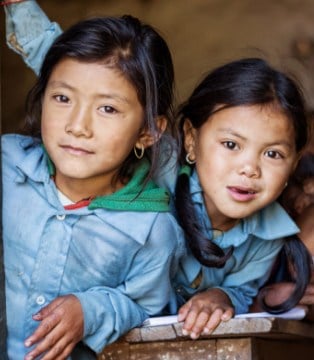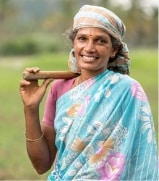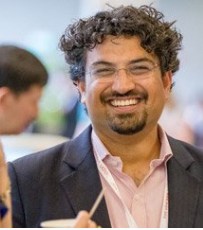- About AVPN
-
-
-
About AVPN
Who We Are
We are a leading ecosystem builder that is increasing the flow of financial, human, and intellectual capital from Asia and around the world into the social sector in Asia. We provide a network of peers, rigorous learning programmes, and innovative capital mobilization opportunities that make sure resources are more effectively deployed.
-
-
-
- Members
-
-
-
Membership Benefits
Unrestricted access to AVPN research reports and case studies
Access market-specific snapshots and opportunities
Increased visibility for events, programs and insights via AVPN website, blog, newsletters and social media channels
Leverage the AVPN platform to bring under-represented social issues top of mind for more than 600 social investors
-
-
-
- Resources
-
-
-
Resources
Highlights of the week
Trust-Based Philanthropy
In the face of increasingly complex and, sometimes rapidly, changing needs on the ground, it is crucial to take a step back and reconsider the status quo.
APAC Sustainability Seed Fund 2.0
By leveraging the success of the first round of the APAC Sustainability Seed Fund, AVPN continues to mobilise continuum of capital into supporting climate solutions in the region.
Faith and Giving
Faith, and the values, belief systems, moral codes, and religious doctrines, that underlie it, shape much of philanthropy across the world. From addressing needs in underserved communities to investing in sustainable energy solutions, faith-aligned givers are demonstrating that compassion can be a catalyst for a more just and equitable world. However, the fundamental drivers of faith-aligned giving often remain unexamined.
-
-
-
- Markets
-
-
-
Markets
We are a leading ecosystem builder that is increasing the flow of financial, human, and intellectual capital from Asia and around the world into the social sector in Asia. We provide a network of peers, rigorous learning programmes, and innovative capital mobilization opportunities that make sure resources are more effectively deployed.
Explore Markets
-
-
-
- Impact Communities
-
-
-
Impact Communities
-
-
-
- Capital Mobilisation
-
-
-
Capital Mobilisation
Featured Deals
Socio-Economic Empowerment of Women
Climate Action and Environment, Education, Financial Inclusion, Gender, Livelihood and Poverty Alleviation
Solve Education: Education through Innovative Learning Platform
Education, Employability, Livelihood and Poverty Alleviation
Lotus Petal Sr. Sec School, Gurugram
Education, Employability, Health
IT Training Against Poverty in Cebu
Education, Employability, Livelihood and Poverty Alleviation
IT Vocational Training Against Poverty
Education, Employability, Livelihood and Poverty Alleviation
Gigatonne: Addressing Problems within the Carbon Credits Market
Climate Action and Environment, Financial Inclusion, Gender, Livelihood and Poverty Alleviation
-
-
-
- Events
-
-
-
Events
Upcoming Events
UN Global Compact 2024 Climate Ambition Accelerator Final Registration
30 April 2024
Restoring Equilibrium: SVCA 2024 Annual Conference – Seeking Balance in A Turbulent World
16 May 2024
-
-
-
CONSTELLATIONS AWARDS 2023
Collaborating for Social Impact
CONSTELLATIONS AWARDS 2023
Collaborating for Social Impact
Introduction
The Constellations Awards celebrate the remarkable ways in which social investors across Asia collaborate to address the complex challenges of our times
The Constellations Awards was launched by AVPN in 2020 to celebrate the remarkable ways in which social investors across Asia collaborate to address the complex challenges of our times.
Asia is big, diverse, and complex – and so are its challenges. Today, Asia Pacific faces an estimated annual funding gap of USD 1.6 trillion to achieve the Sustainable Development Goals (SDGs).
Since its launch in 2020, the Constellations Awards has illuminated the ripples of positive impacts of 15 outstanding projects across Asia. The laureates have responded boldly with systemic solutions. They have established shared aims and pooled resources to meet the moment with imaginative action, and meet those challenges through collaborations that pioneer solutions at scale.
In 2023, the Constellations Awards put a spotlight on collaborations that advance gender equality in Asia. Capital can empower the voices of equality and enable women to realise their potential as leaders and agents of change in their communities. If we are to close these staggering gaps in gender equality in Asia, it is vital that we take strong, deliberate, and proactive collaborative action to unlock capital to create a more equitable world for women and girls in Asia.
In 2023, we are proud to recognise 3 outstanding collaborative solutions that are creating a more equitable world for women and girls in Asia:
- Developing Online Sales Skills to Improve Women’s Livelihoods
- Manyata
- Skill Impact Bond





2023 Theme
Creating a More Equitable World for Women and Girls in Asia
While there are substantial improvements in women’s literacy and life expectancy in Asia and the Pacific, gaps persist in education, health, employment and leadership. Discriminatory norms and practices, restrictions on mobility and heavy household responsibilities continue to limit many women’s economic and social activities outside the home, dampening their opportunities for economic security, independent decision-making and personal growth. (Source: Vision for Gender Equality in Asia and the Pacific by 2030: Possible Future Directions for Asian Development Bank’s Gender Work, ADB report
Capital can empower the voices of equality and enable women to realise their potential as leaders and agents of change in their communities. If we are to close these staggering gaps in gender equality in Asia, it is vital that we take strong, deliberate, proactive collaborative action to unlock capital to create a more equitable world for women and girls in Asia.
The projects we celebrate in the Constellations Awards are inspiring, but more importantly, they are practical. Demonstrate how you have harnessed the strengths of different actors, drive positive change and achieve long-term impact, share your game-changing point of view. Does your collaborative project have the potential to catalyse impact at scale by providing new means of accessing capital?
Are you a pioneer? Pave the way for others – inspire them to mobilise their capital towards impact and a more resilient Asia.
Winners
We are proud to announce the 2023 winners!
That are addressing complex problems of our times.
Constellation Awards 2023 Laureate
Manyata
Constellation Awards 2023 Laureate
Developing Online Sales Skills to Improve Women’s Livelihoods
Constellation Awards 2023 Laureate
Skill Impact Bond
Previous Finalists
Finalists for People’s Choice Awards 2022
The 12 finalists have been carefully selected by our panel of judges and the project with the maximum votes will be entitled to win the People’s Choice Award 2022.

Gender
Constellation Awards 2023 Laureate

Gender
Constellation Awards 2023 Laureate

Gender
Constellation Awards 2023 Laureate
AVPN Constellations Awards
Discover the collaborative stories of our Constellations Awards winners

















